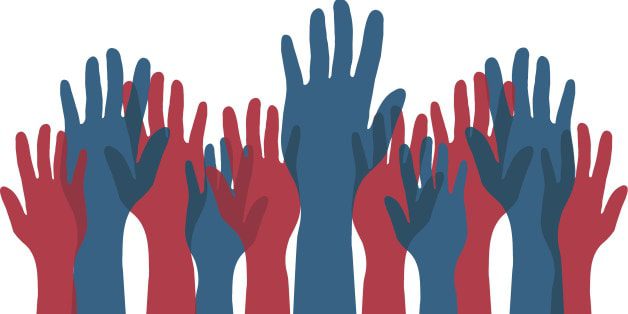Democracy is precious and we cannot let the coronavirus stop us from participating in it. We must adjust how we engage in democracy to keep everyone healthy. To stop participating completely during such a critically important election year would be a disastrous mistake.
Democracy is people coming together at a meeting and talking about the public issues that affect them such as the high cost of healthcare and the rights of immigrants in the age of mass deportations.
Democracy is concerned residents standing up to their member of Congress at a town hall meeting and asking them why they voted for or against a certain controversial bill.
That is now all gone.
We must now all socially distance ourselves and stay at home. In order to stop the COV-19 outbreak that, as of this writing, is responsible for the death of 881 Americans, has forced us to think of creative ways to still participate in our democracy.
Democracy is an innately social affair. It requires people to speak to each other to understand one another’s worldview. People argue respectfully about how they see the world and what ought to be done by our political leaders.
While this pandemic persists, I propose that engaging in democracy be done further online and that all elections be administered solely with mail-in ballots. We cannot engage in silence, especially during a pandemic that very much requires a vibrant discussion on how to deal with this virulent virus.
The discussion on how to combat this crisis must include our community’s most vulnerable people, like the elderly, those who are immunocompromised, low-income people and those without health insurance. Their voices are often not given a sufficiently sized platform. We should all listen to them and our political leaders should seek their input as they attempt to deal with the health and economic dimensions of this nerve wracking national nightmare.
I propose the following for practicing democracy in a healthy way. In this monumentally important election year, local and state election departments must do their best to ensure people are able to vote without being asked to attend a physical location. The CDC has warned against mass gatherings. Voting locations during November elections are sometimes packed.
If this pandemic is still taking place close to August and/or November, I urge the State of Florida to sign up all registered voters for a vote by mail ballot for the August primary elections and/or November general election. In Washington state, all voters have an absentee ballot automatically sent to their home and turnout there has been strong.
By automatically sending vote by mail ballots to all voters, we will ensure that this virus does not cause significant voter absence. This is a matter of protecting democracy and protecting the ability to vote, a central American value.
In the meantime, I encourage individuals to sign up to vote by mail themselves. It’s easy and takes a few minutes. You can call the Miami-Dade Elections Department at 305-499-8444 (calling is likely the fastest way to do it), e-mail them at votebymail@miamidade.gov, or visit: https://www.miamidade.gov/global/service.page?Mduid_service=ser1512065909614490.
I also urge everyone to follow political leaders on one’s preferred social media. Members of Congress and local and state elected officials usually have email newsletters you can sign up to on their government website. One will receive regular information on what they are working on.
Engage with your elected officials via social media by commenting on their posts, email their office questions, or simply call their office and provide your valuable input on what you think must be done regarding the coronavirus or other pressing policy matters.
Coronavirus has stopped us from meeting in person but we can keep democracy vibrant. We must adjust. It’s up to us as individuals, our political leaders, and the local and state administrators of elections to keep democracy strong. I’m confident we will rise to the challenge.
Bryan Hernandez is a CNews Columnist, where he writes about local politics and policy developments. In 2015, Hernandez worked at the Environmental Protection Agency (EPA)’s Office of Public Engagement in Washington, D.C. Hernandez graduated from American University with a B.A. in Political Science. If you’d like to reach him, email him at bryan@cnews.net






